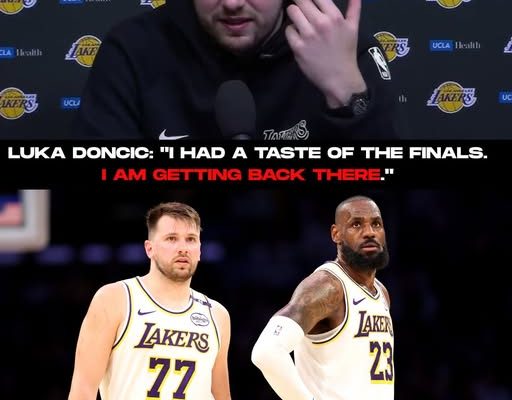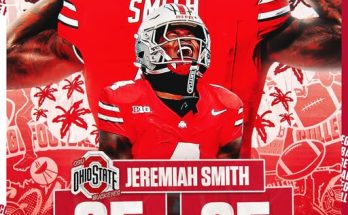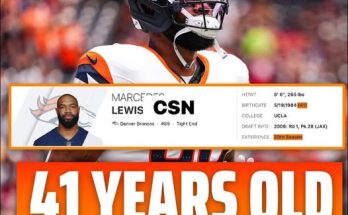Luka Dončić’s future with the Dallas Mavericks took a decisive turn as the Slovenian superstar agreed to a lucrative contract extension that all but cements his commitment to building a legacy in Dallas. The move was largely expected given his age, stature, and the Mavericks’ aggressive posture in improving the roster around him. But in the modern NBA, where player movement and team power dynamics are interwoven into every major decision, Dončić’s extension signals more than just loyalty to a franchise. It offers ripple effects that touch other stars across the league — most notably, LeBron James. The question that emerges isn’t whether Dončić will contend for a championship (he’s made his intentions clear), but rather what his long-term stability means for a player like LeBron, who now faces the inevitable twilight years of his career amidst a rapidly evolving competitive landscape.
LeBron James has long defined the NBA’s elite tier. He has manipulated power structures, orchestrated super teams, and influenced front offices from Cleveland to Miami to Los Angeles. But the league today is not the same league LeBron entered in 2003, and it’s certainly not the one he dominated for much of the past two decades. Players like Luka Dončić aren’t just stars; they are extensions of the new era, a generation that grew up idolizing LeBron and now sets the pace for a league transitioning to its next dominant phase. Luka is now locked in. He is not flirting with other franchises. He is not teasing the media with cryptic Instagram posts or ambiguous offseason decisions. He’s all-in on Dallas, with a championship in his sights and an ownership group willing to spend. That makes him not only a threat, but a model of permanence in an age of volatility — something LeBron himself once used to his advantage but now must reckon with as his championship window narrows.
Luka’s commitment also impacts the Lakers in strategic ways. The whispers around the NBA had always included the Mavericks as a potential dark-horse candidate to pair LeBron with another star or even serve as a landing spot should things sour in Los Angeles. That fantasy has now been laid to rest. Dončić’s extension takes Dallas off the board as a possible late-career pivot for LeBron — a city with no state income tax, a strong roster, and a burgeoning basketball culture that might’ve appealed to the aging king. But more importantly, it eliminates a suitor that might have been a leverage point in negotiations with the Lakers. LeBron and Klutch Sports are historically tactical about such leverage. By locking Luka down and doubling down on a core that includes Kyrie Irving and a growing supporting cast, the Mavericks are essentially saying they have no room or interest in accommodating LeBron’s farewell tour. The NBA arms race continues, and Dallas has placed its bet firmly on the 26-year-old Slovenian, not the 40-year-old face of a bygone era.
LeBron’s situation with the Lakers remains under a microscope. His contract flexibility, year-to-year opt-outs, and tight grip on the front office’s direction are all signs that he continues to wield considerable power. However, that power is more precarious than ever. The Lakers, though still a storied franchise, have failed to deliver consistent winning around LeBron since the 2020 bubble championship. With Dončić off the market and younger contenders like the Denver Nuggets, Minnesota Timberwolves, and now Dallas doubling down on long-term cores, LeBron must navigate a conference that is no longer shaped in his image. He is no longer the apex predator; he’s the elder statesman trying to fend off the new class.
Luka’s extension has another indirect effect: it raises the bar of urgency in L.A. The Mavericks went out and traded for PJ Washington and Daniel Gafford midseason, and they pushed the Boston Celtics to six games in the Finals. They are not a stagnant operation. If Dallas can keep Luka happy and build a contending team around him quickly, it puts pressure on the Lakers to show they can do the same for LeBron. The Western Conference doesn’t wait for anyone. If the Lakers are unable to land another meaningful piece — whether it be via trade, free agency, or internal development — then LeBron may find himself in the position he has always tried to avoid: playing on a team without a realistic path to a title.
Dončić’s extension also casts a longer shadow when it comes to mentoring and succession. LeBron has made no secret of his desire to play with or against his son, Bronny James, and has expressed interest in passing the baton in his own way. But Dončić is one of several players who seem poised to take that baton — without LeBron’s blessing, without needing to orbit around his gravity. Luka isn’t waiting in line. He’s already on the MVP shortlists. He’s already led a team to the Finals. And now, he’s locked into a franchise that has shown it will move heaven and earth to support him. In contrast, LeBron is looking over his shoulder at the ticking clock, aware that every move he makes might be his last in the league. The security Luka has achieved is the kind of security LeBron once enjoyed. That security is now a luxury LeBron can’t quite afford.
There’s also a cultural element at play. Luka’s extension is a statement — a declaration that one can stay in a mid-market and still compete for titles. It disrupts the idea that one must migrate to L.A., Miami, or New York to find significance or championships. LeBron famously made that migration central to his narrative: The Decision to Miami, the Return to Cleveland, and the Legacy Play in L.A. Luka is reversing that trend. He is asserting that staying put — investing in an organization and making it a contender from within — can be just as powerful, just as defining. It’s a cultural pivot in which Dončić stands as the face of something new, while LeBron’s methods, though effective in their time, are gradually becoming less influential.



